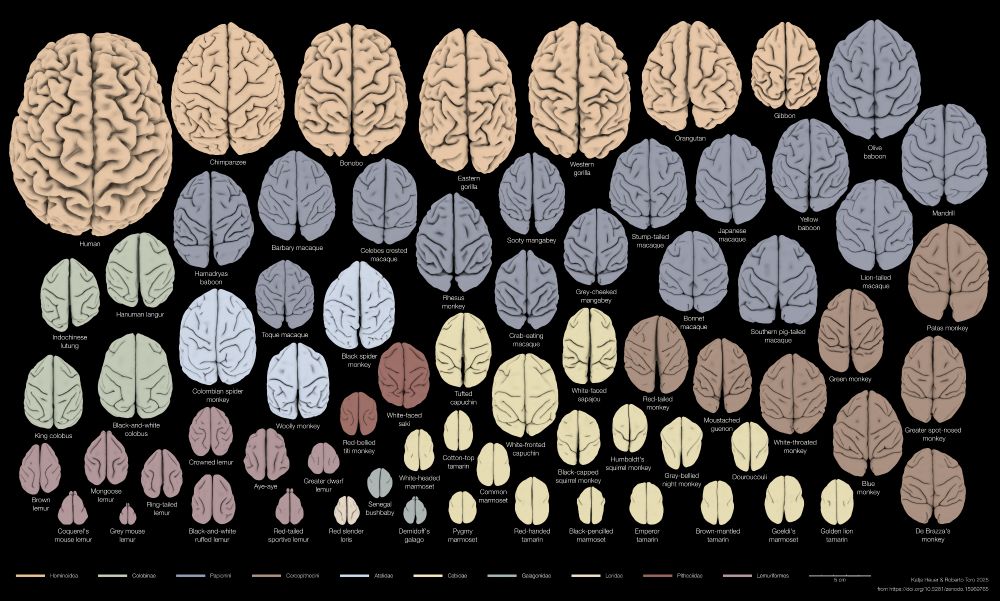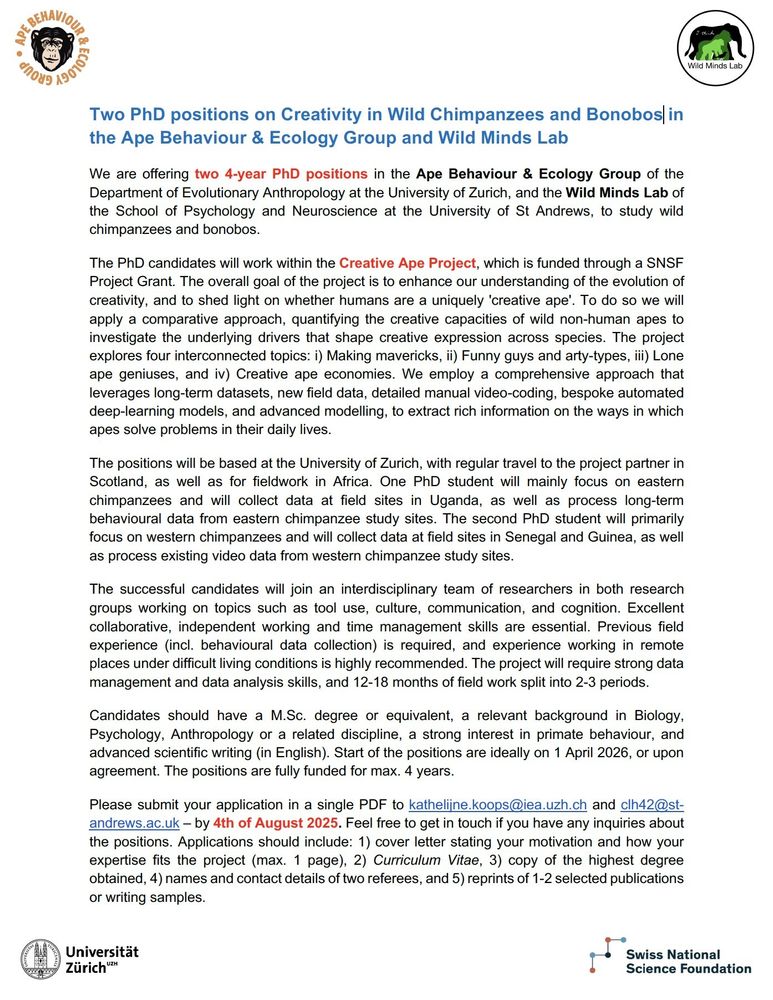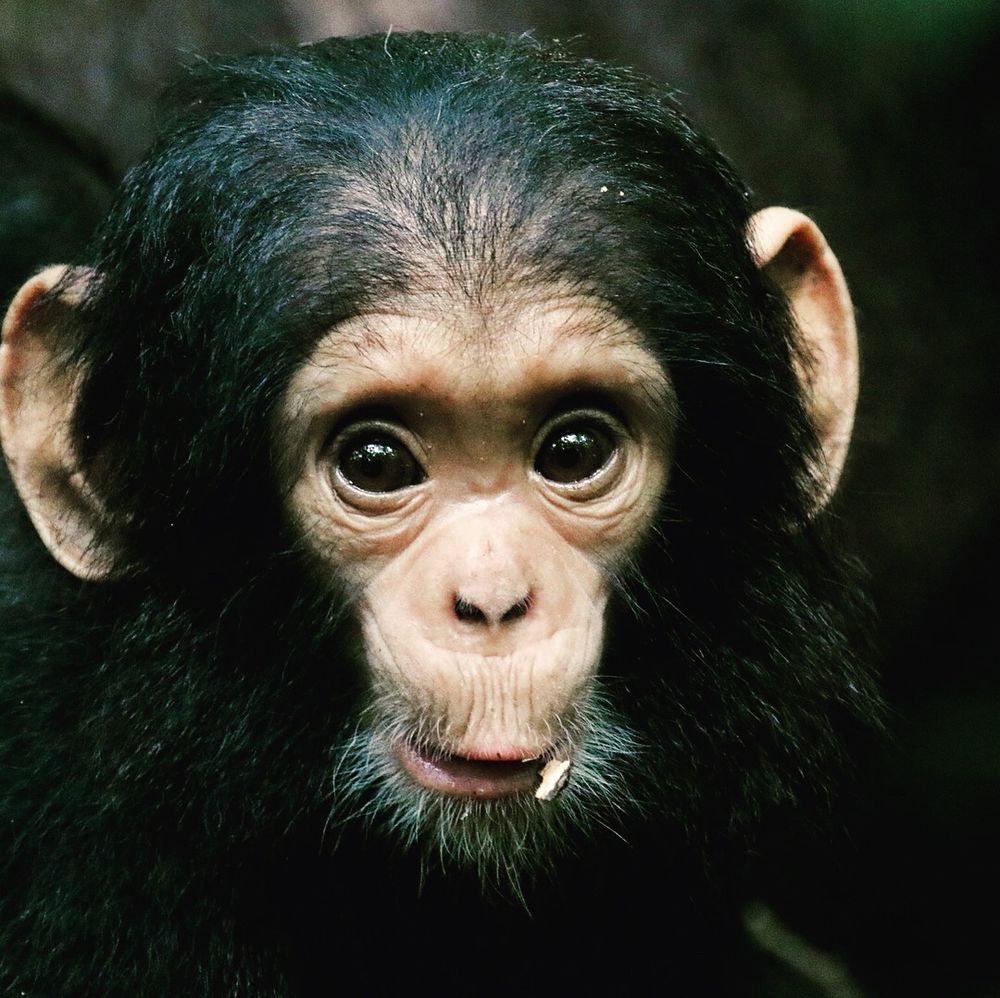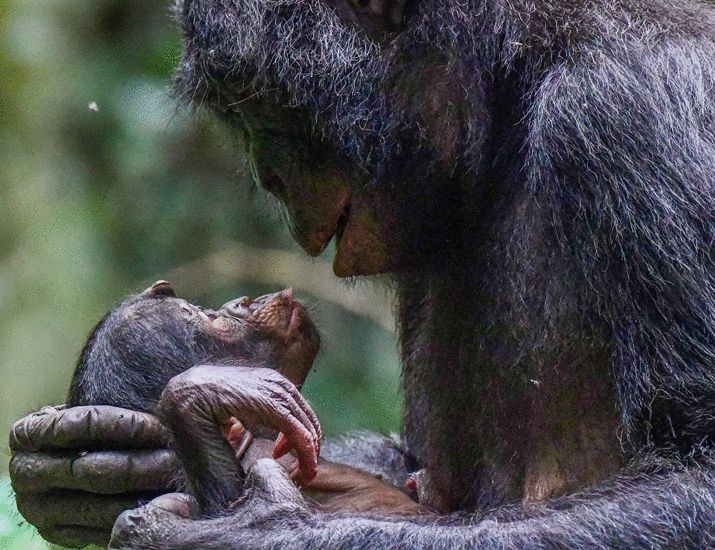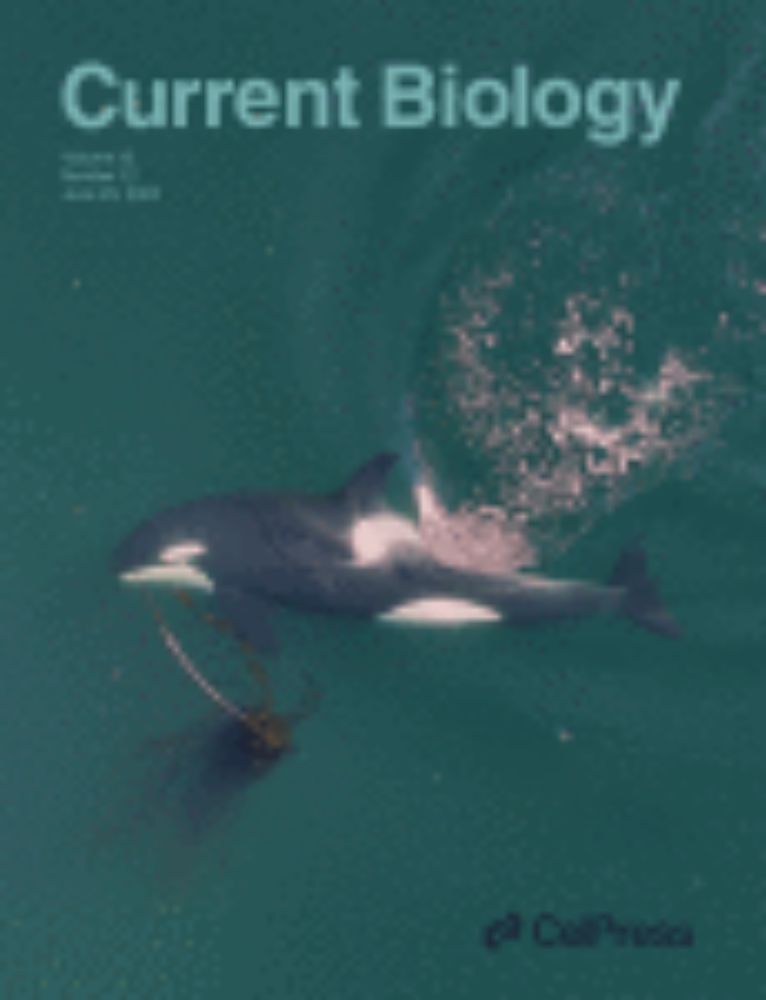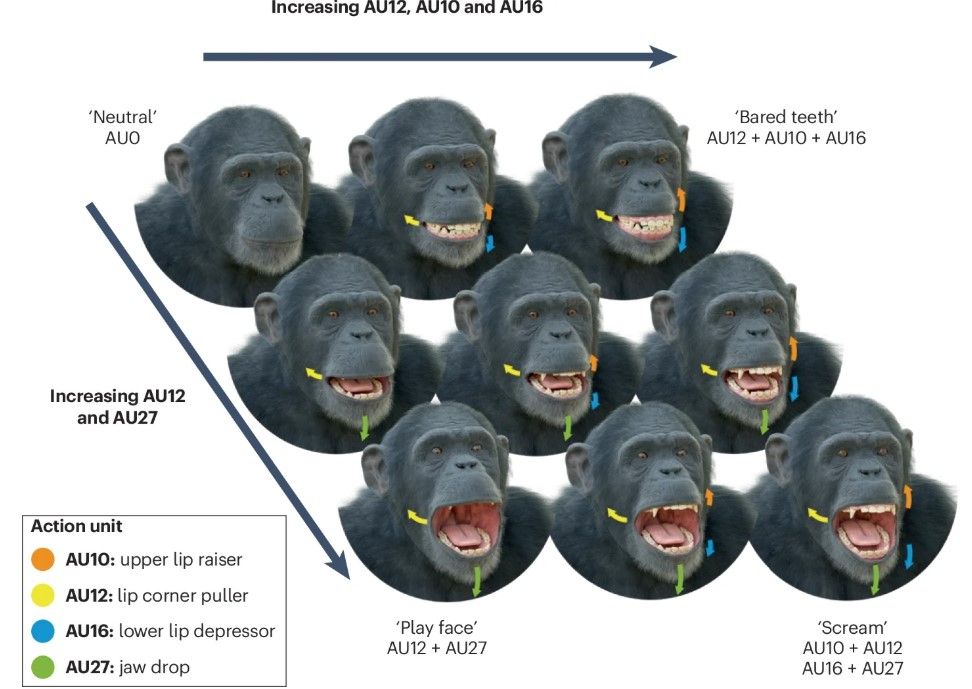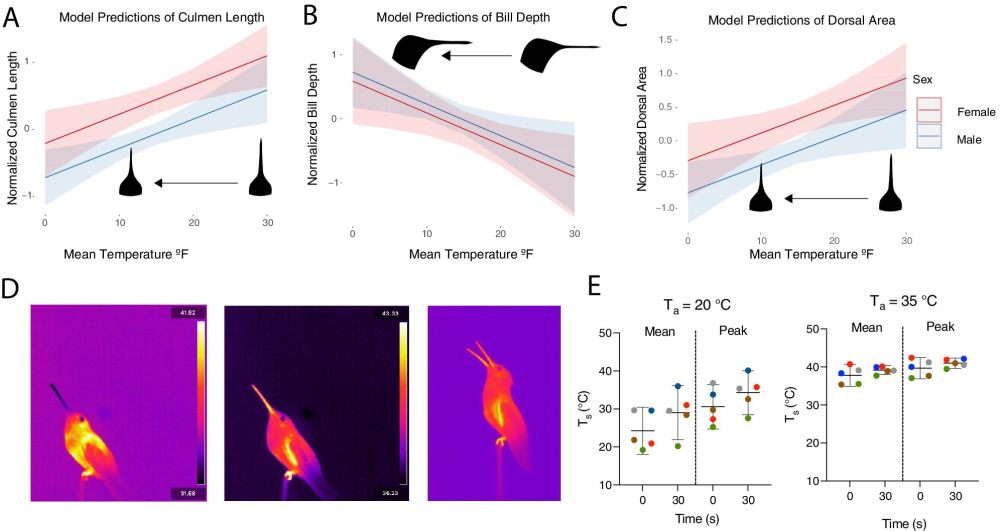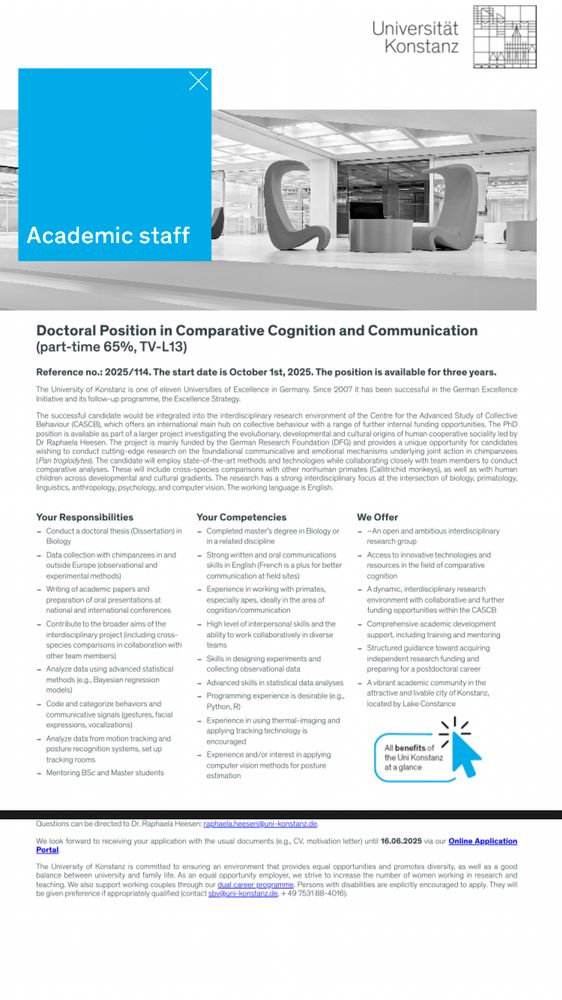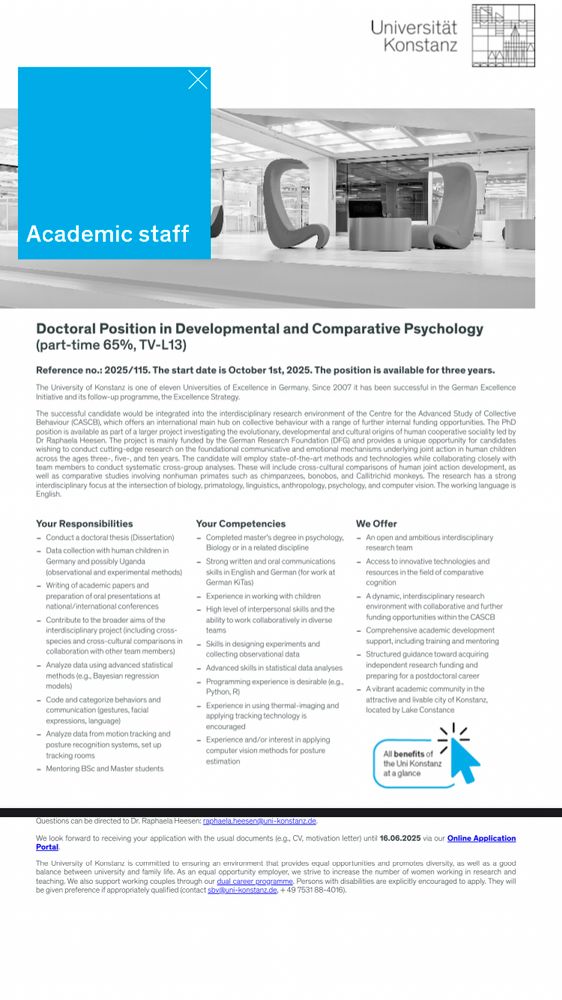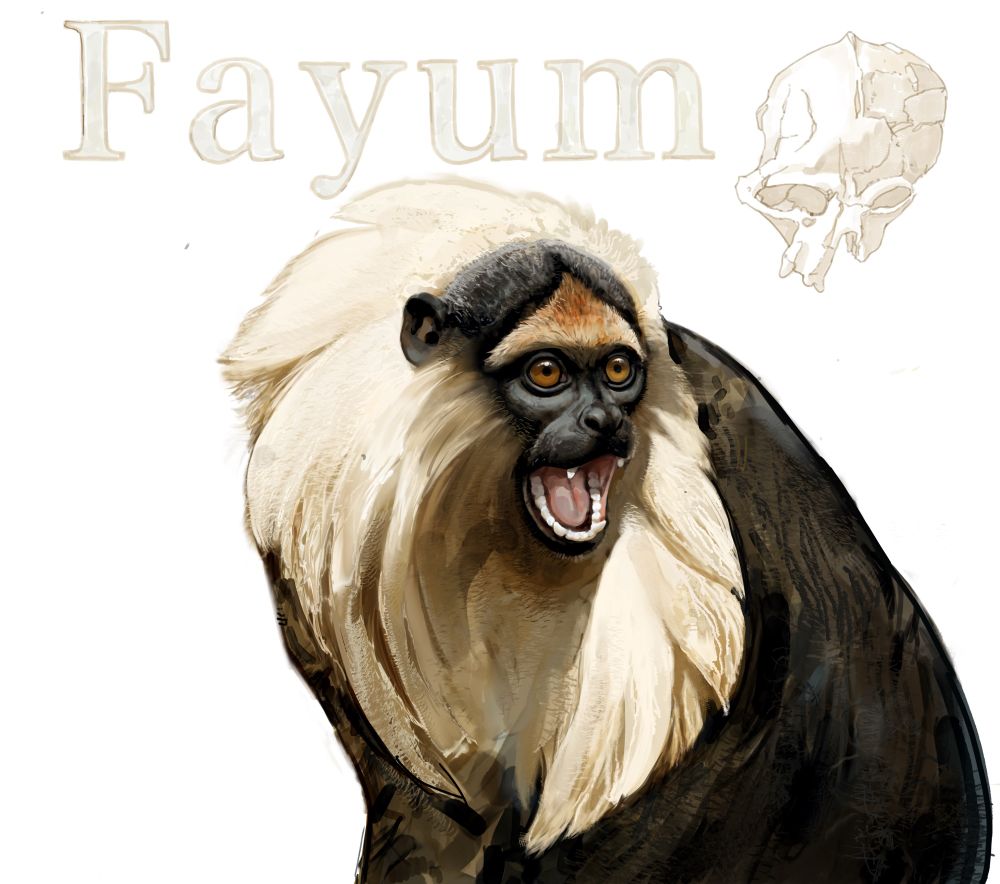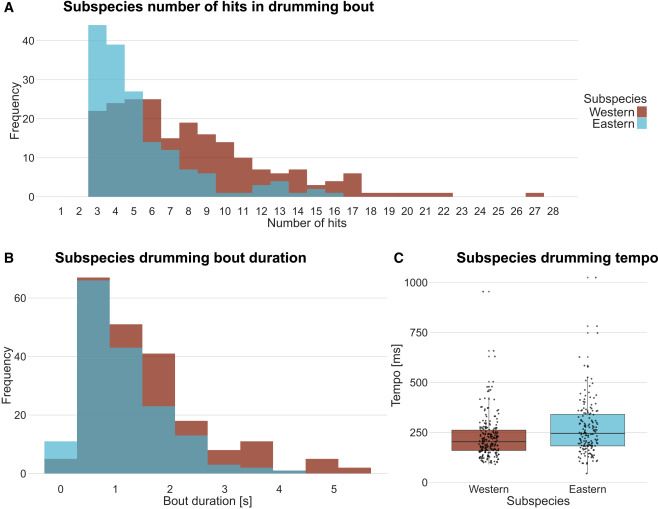Thibaud Gruber
@thibaudgruber.bsky.social
1K followers
460 following
44 posts
Associate Professor at the University of Geneva. Primatologist. Comparative psychologist. Co-director Bugoma Primate Conservation Project.
Posts
Media
Videos
Starter Packs
Reposted by Thibaud Gruber
Thibaud Gruber
@thibaudgruber.bsky.social
· Aug 22
Thibaud Gruber
@thibaudgruber.bsky.social
· Aug 20

Prevention as the Original Focus to Acquire Cultural Competence? A Journey into Our Primate Living and Extinct Relatives’ Cultural Lives
Published in Psychological Inquiry: An International Journal for the Advancement of Psychological Theory (Vol. 36, No. 3, 2025)
www.tandfonline.com
Reposted by Thibaud Gruber
Thibaud Gruber
@thibaudgruber.bsky.social
· Jul 16
Elliot Howard-Spink
@ehowaspi.bsky.social
· Jul 15

Old age variably impacts chimpanzee engagement and efficiency in stone tool use
Long-term standardized data collection on wild western chimpanzees reveals late-life changes in stone tool use, and the extent of these changes varies between individuals.
elifesciences.org
Reposted by Thibaud Gruber
Reposted by Thibaud Gruber
Reposted by Thibaud Gruber
Reposted by Thibaud Gruber
Reposted by Thibaud Gruber
Thibaud Gruber
@thibaudgruber.bsky.social
· Jun 24
Reposted by Thibaud Gruber
Reposted by Thibaud Gruber
Reposted by Thibaud Gruber
Reposted by Thibaud Gruber
Lars Chittka
@larschittka.bsky.social
· May 25
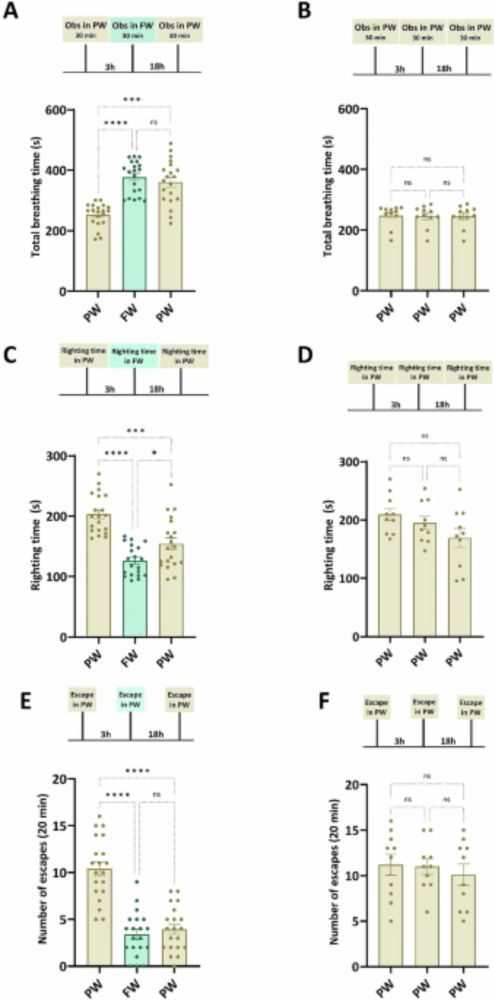
First evidence of an anxiety-like behavior and its pharmacological modulation in a molluscan model organism, Lymnaea stagnalis - Translational Psychiatry
Translational Psychiatry - First evidence of an anxiety-like behavior and its pharmacological modulation in a molluscan model organism, Lymnaea stagnalis
www.nature.com
Reposted by Thibaud Gruber
Reposted by Thibaud Gruber
Reposted by Thibaud Gruber
Revathe
@revathe.bsky.social
· May 14
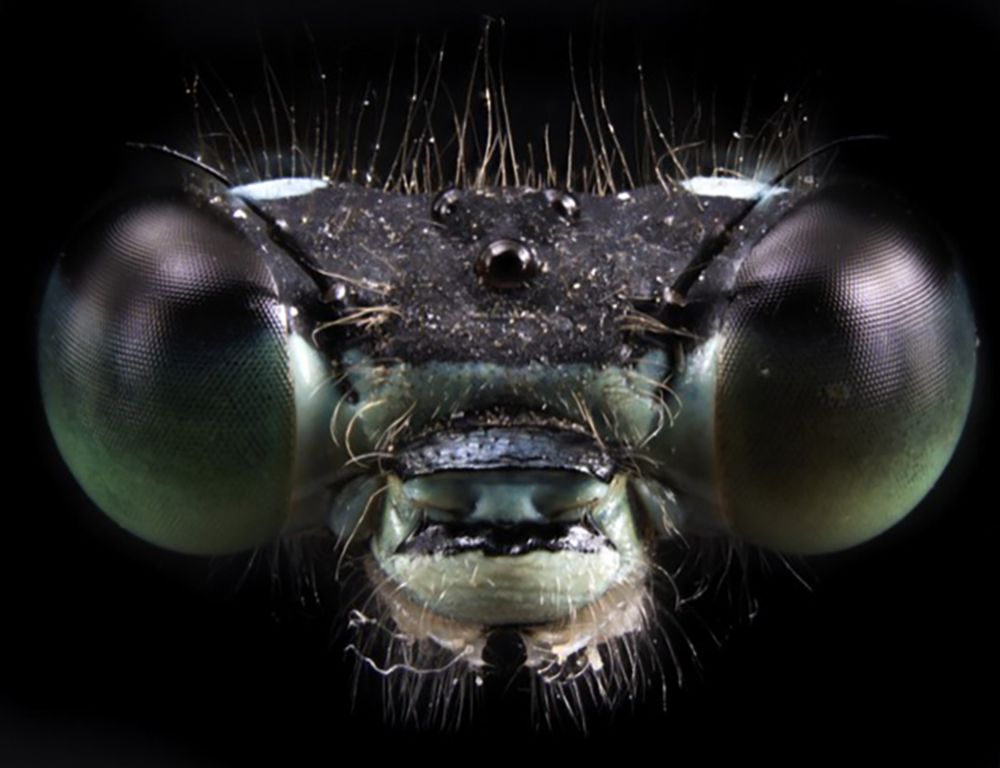
Sumatran orangutan mothers differ in the extent and trajectory of their expression of maternal behaviour | Proceedings of the Royal Society B: Biological Sciences
Mothers play a crucial role in the early development and survival of mammalian offspring, and differences in maternal care may affect offspring’s development. Whereas previous research has primarily focused on biological and socioecological factors to ...
royalsocietypublishing.org
Reposted by Thibaud Gruber




